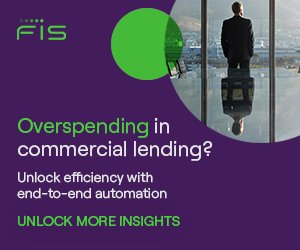As a freelancer or gig worker, you’re probably always looking for ways to generate extra money. You may have heard about cash advances and are wondering if they’re a good option for you.
In this post, we’ll explain what a freelance cash advance is, how cash advances work, and whether they’re a good option for you. We’ll also provide some pointers on how to make the most out of this type of financing. Read on to learn more!
What is a Cash Advance?
A cash advance is a short-term loan from a bank or alternative lending institution. It also refers to a service offered by several credit card companies that allow cardholders to withdraw a set amount of cash.
Cash advances typically feature high-interest rates and fees, but they appeal to borrowers because they also feature quick funding and don’t take long to get approved.
The fee and interest you pay for a cash advance are often directly proportional to your withdrawal amount and the length of your repayment. For this reason, cash advances are considered to be costly and should only be used as a short-term solution.
Since issuers limit the amount of cash you can access, a cash advance may not be enough to cover significant expenses.
Types of Cash Advances
There are different types of cash advances, but as previously stated, the common denominator among them is the high-interest rates and fees.
Credit Card Cash Advances
Borrowing on a credit card line of credit is the most popular form of cash advance. Depending on the credit card company, you may withdraw the funds at an ATM or from a check deposited or cashed at a bank.
Credit card cash advances usually have a high-interest rate —- even higher than the rate on standard purchases. Typically, you’ll pay an average of 24%, which is almost 9% higher than the usual annual percentage rate (APR) for purchases.
Additionally, interest begins to accrue immediately, with no grace period provided. These cash advances also usually include a fee, either a flat rate or a portion of the advanced amount. You may also be charged a small usage fee if you use an ATM to withdraw cash.
In most cases, credit card cash advances don’t qualify for no- or low-interest promotional offers. On the bright side, they’re quick and easy to obtain.
Merchant Cash Advances
Merchant cash advances are loans made to businesses or merchants by banks or alternative lenders.
This type of cash advance is typically used to finance the activities of businesses with less-than-ideal credit. In certain situations, these advances are paid for using future credit card receipts or a portion of the business’s income from sales.
Suppose your company regularly generates significant credit and debit card transactions. In that case, you’ll most likely qualify and have the funds through a simple application in a matter of days.
Instead of referring to your credit score, alternative lenders assess the trustworthiness of your business by examining various data points, including how much money you get through online accounts such as PayPal.
Payday Loans
In the context of consumer financing, the term “cash advance” can also apply to payday loans. Ranging from $50 to $1,000, payday loans are issued by specialized payday lenders but come with fees (usually about $15 per $100 borrowed – or more in other situations) and interest rates that exceed 100%.
Instead of considering the borrower’s credit score, lenders base the loan amount on local state regulations and the amount of the applicant’s paycheck.
Once the loan is accepted, the lender pays the borrower in cash; if the transaction was processed online, the lender makes an electronic deposit to the borrower’s checking or savings account.
The loans are only available short-term. They must be repaid on the borrower’s next payday unless the borrower wishes to extend the loan, in which case additional interest is applied.
Should I Get a Cash Advance?
A credit card cash advance can work out as a reasonable alternative for those who have an emergency and need money but have limited resources for receiving it. Consider getting one if you have a clear and reasonable plan for repaying the amount you borrowed in a short period.
For instance, cash advances are a better option than a payday loan or a car title loan because of the excessive, triple-digit interest rates associated with such loans and the greater payoff flexibility that comes with credit card debt.
Cash advances are a bad idea in these particular conditions:
Paying a Credit Card Bill
A cash advance is a relatively expensive way to pay bills, and the risk of spiraling into debt is unavoidable. The possibility of paying many times the original advance amount (in interest charges) is real.
Buying Something you Can’t Afford
Going into debt to gratify a desire is risky, not only financially, but also emotionally. Opting to thrive on instant gratification and the temporary emotional lift of a substantial purchase will eventually cause regret.
When You’re About to Declare Bankruptcy
New credit card debt doesn’t magically vanish in bankruptcy. Your creditors and a judge will look over your debts, including the dates and types.
Credit card use of any kind may be considered fraudulent once you know or have a strong inkling that you’ll shortly file for bankruptcy.
Bottomline
While cash advances are convenient, they are often quite costly. If you’re in a bind and can’t use any of the alternatives to cash advances, make sure to pay off a cash advance as soon as possible. Interest begins to accrue the same day a cash advance is granted and is frequently higher than a card’s typical APR.
See to it that you understand all applicable fees and have considered all your options. Often, it’s likely that there are less expensive alternatives to cash advances.

